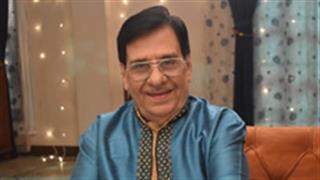While there are a few celebrities from the new generation who choose to keep mum or be politically correct on various national and international issues, Aneesha Madhok chooses to voice her opinion for the betterment of the fellow citizens and also to bring about a positive change in the society. And so the young actress, who is making her Hollywood debut with "Bully High", spoke in support of the farmer's protest and also urged the government to hear their plea.
In a video, she said, "I support the Punjab farmers' protest. I feel India is a democratic country and everyone has the right to stand up for what they believe in peacefully. I feel that the farmers should be at least heard because we are not farmers and we won't know their pain. When people protest they just want their voices to be heard. And I understand that we are still battling the Coronavirus and it's difficult to hold a protest at this time, but this wouldn't have happened if we had heard then in the first place. Let's hear them out. I am in full support of them and will always be."
`Despite the farmer's bill being advantageous for some people, it has certainly not been an advantage for people in Punjab. Some people after reading the bill feel that it makes sense however some farmers do not feel it made sense to them. So we need to listen to the farmers and what they want. If they wanted they could have protested violently but they did not," she said.
There are three bills which make the farms bill 2020 - The Farmers' Produce Trade and Commerce (Promotion and Facilitation) Bill, 2020, The Farmers (Empowerment and Protection) Agreement on Price Assurance and Farm Services Bill, 2020, and The Essential Commodities (Amendment) Bill, 2020.
Talking about the agricultural bills, Aneesha said, "I feel the bill should be applicable in other parts of India except for Punjab and Haryana. Historically, Punjab is a state that is quite different from its structure. The new bill is I think an excellent idea but it will not be helpful for the farmers in Punjab. The issues and fears raised by the protesters include end of 'minimum support price' (MSP) regime in due course, the irrelevance of state-controlled Agricultural Produce Market Committee (APMC) 'mandis', risk of losing out land rights under contract farming rule, reduction in the price of farm produce due to market domination by big agri-businesses and exploitation of farmers by big contractors through contract farming provisions."
Simplifying the bill, and how it will benefit the big guys, Aneesha said, "Free market competition is generally good, but doesn't work for agriculture where you are producing a commodity. Generally, if I can make a better product than others, I stand to make more money than my competition, so I am incentivized to work harder to improve my products. This model doesn't work for the farmers because everyone is producing the same product. For example, if my bakery makes great baked goods and has better customer service, then I will have more customers. However, farmers are producing the same wheat, corn and sugar cane."
"So no matter how hard you work your product is marginally differentiated. So, if you don't have guaranteed minimum prices and public buyers, the big guys with large lands and resources will have an opportunity to negotiate with private buyers for their crops but the small guys won't have a seat at the table. This is the problem," Aneesha added.
She is devastated to see the plight of the farmers. Expressing her pain, she said, "As a gen-Z actor I am using my voice and platform with the help of social media to help the farmers have their voices heard. We must make India a country where everyone is entitled to have their opinion heard and challenged. India can be a true democracy when Punjab has the right to decide its fate."
"Right now, we need to respect the farmers, listen to them and certainly not have the police harm them. The tear-gassing was so not acceptable. Seeing the agony of the farmers' and their frustration makes me feel like I want to help them. It broke my heart when I saw a 70-year-old man protesting hit with tear gas," Aneesha concluded.
I support the Punjab farmers protest, I want them to be heard: Aneesha Madhok
Tuesday, December 01, 2020 11:22 IST



















